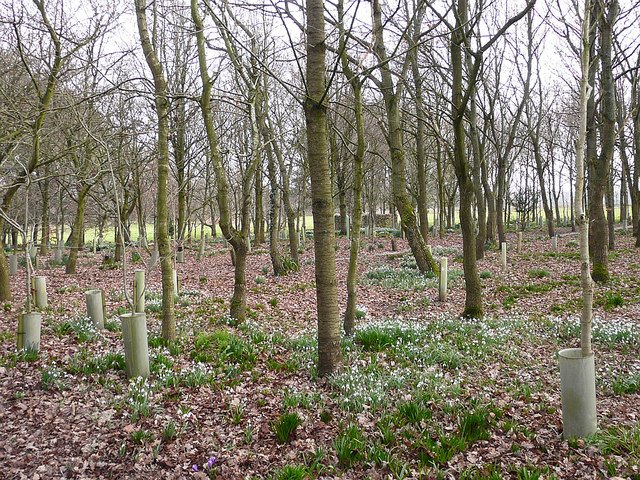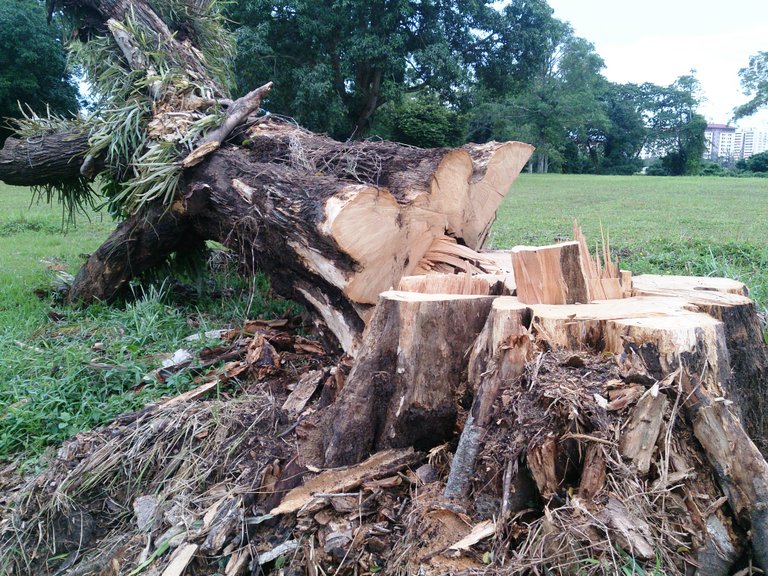I can bet that you cannot mention 5 food without mentioning a tree or plant food with it especially staples. Trees are a fundamental part of our lives and our ecosystem as plants utilize carbon dioxide in converting sunlight into food for themselves and releases oxygen for us to use for our survival and you must have heard that with trees we can fix climate problems especially climate change, so everyone is planting trees but it looks like we are going to begin a tree cutting spree soon.
Why will you say we should start cutting down trees, do you know anything at all, who do you think you are to tell us this when we are planting trees just to save our dear mother earth and so on. I know your thoughts and feelings but just calm down and let's discuss this together. I am not the one who mentioned that we are going to start cutting down some trees, rather, some researcher after finding useful evidence has advised that this is done but to understand where they are coming from, let's look at the carbon cycle.

geograph: Rose and Trev Clough
We find carbon everywhere both living and non-living things and it is a key building block of everything living on earth. Organisms release carbon into the atmosphere as carbon dioxide gas usually through breathing, and other natural and artificial events like volcano eruption, wildfire burning, and other human activities that releases carbon dioxide. We cannot deny the fact that CO2 is a greenhouse gas that absorbs and emits infrared radiation and with this, our atmosphere is able to trap heat thereby keeping us warm and not frozen.
While they perform a good job in keeping our earth warm, and when carbon dioxide gets into the atmosphere, some can find their way into the ocean dissolving into them, or they are turned into sugar when plants absorb them during photosynthesis, and this has been able to keep our global warmth on check and balance for a very long time until recently when we learned about burning of fossil fuel and its economic impact which has now made us burn a lot of fossil fuels that has now affected the carbon cycle balance thereby causing lots of carbon to be in the atmosphere compared to what is being absorbed and dissolved.
Asides warming the earth, the oceans are also increasing in acidity and this is not good for all life forms, and so we began to use Carbon dioxide Removal (CDR) techniques but a lot of the technologies that we have developed are very expensive and that's why we have resolved to planting a whole lot of threes so they can help with the job but not everywhere has tress like in the Savannah with more grasses and few trees or in the forest with no trees at all, and if we decide to plant some trees in areas where they cannot survive, they will end up not growing.
Planting trees seedlings without care for them would mean they would die and let's not forget that whatever carbon dioxide a tree has taken would be returned in multiple folds when they are decomposing. Even though plants take away carbon dioxide from the atmosphere, they also return carbon dioxide to the environment either through cellular respiration, decomposing, or cases of wild fires. So while they store carbon, they are not a permanent reservoir for it as they release it one way or the other over time. So what solutions are these researcher bringing forward?
Researchers in a paper published in September 2024, researchers accidentally found a way to keep carbon storage long term instead of short term in trees and this method was discovered when they saw an old preserved dead Eastern Red Cedar tree buried underground about 2 meters in Quebec, Canada. They were looking to create a wood vault when they stumbled on this tree.
https://media.freemalaysiatoday.com/wp-content/uploads/2024/05/1796512c-pokok-tumbang-kl-bernama-290524.webp
freemalaysiatoday
They had buried a tree underground in a way to prevent it from aerobic microbes, fungi, or insects. The goal was to keep the wood intact without losing its carbon since there are no Decomposers to break down the wood and release the carbon into the atmosphere. In the process of digging the tree grave for test, the came across the dead Eastern Red Ceder which had been buried for long. Using carbon-14 dating, they found out that the tree has been down there for about 3775 years. They then compared the old tree to a fresh tree to compare their carbon reservoirs, and to their surprise, the buried tree only lost about 5% of its carbon over those years.
With this, the tree helped the researchers find answers to what they wanted to get before, which I would assume was money and time saved for them, so they suggested that cutting down some trees and burying them in oxygen poor clay soils could help us keep them from releasing carbons into the atmosphere. The trees they intend to cut and bury are tree that had fallen either by storm impact or human activities such as tree cutting in cities, or trees that has been destroyed by wild fire. The intention is to bury the trees in oxygen free clay soil so as to prevent them from releasing carbon into the atmosphere.
For Further Reading
https://www.sciencenews.org/article/burying-log-climate-change
https://extension.psu.edu/how-forests-store-carbon
https://www.noaa.gov/news-release/carbon-dioxide-now-more-than-50-higher-than-pre-industrial-levels
https://earthobservatory.nasa.gov/features/CarbonCycle
https://www.climate.gov/news-features/understanding-climate/climate-change-atmospheric-carbon-dioxide
https://www.science.org/doi/10.1126/science.aay7976
https://www.nature.com/articles/s41558-020-00976-6
https://www.science.org/doi/10.1126/science.adm8133
https://www.eurekalert.org/news-releases/1058836
https://www.sciencedirect.com/science/article/abs/pii/S0012825210001571
Posted Using INLEO


